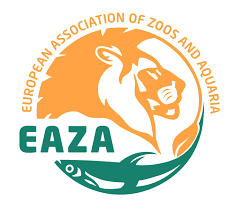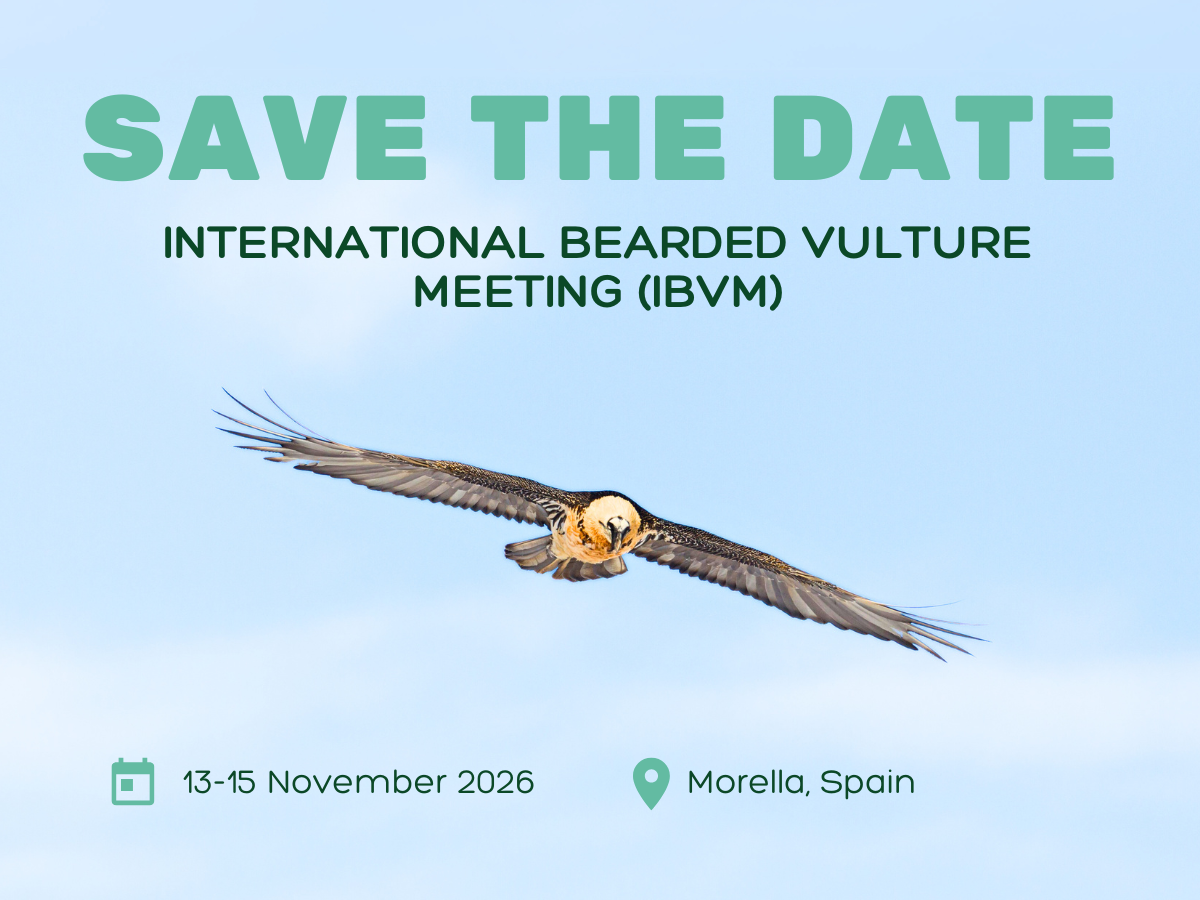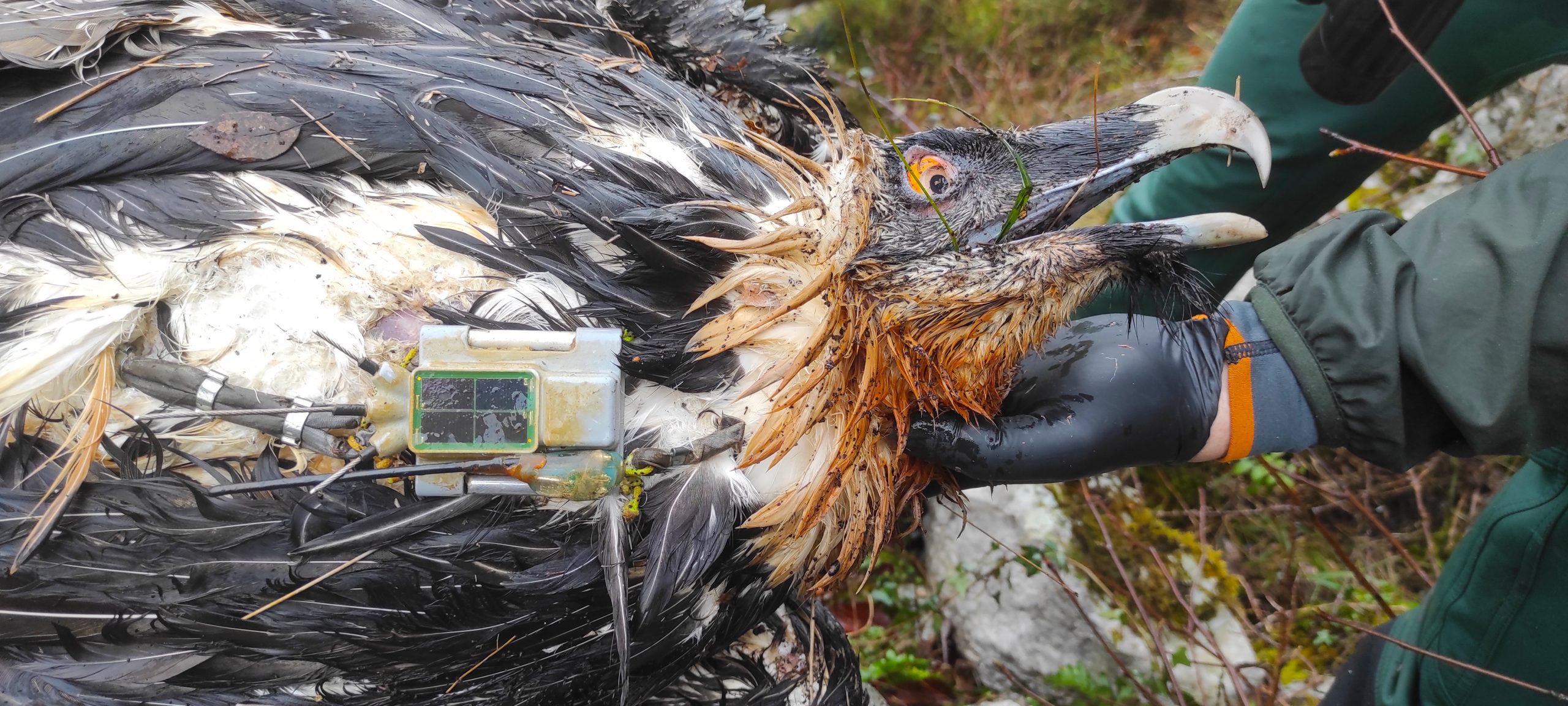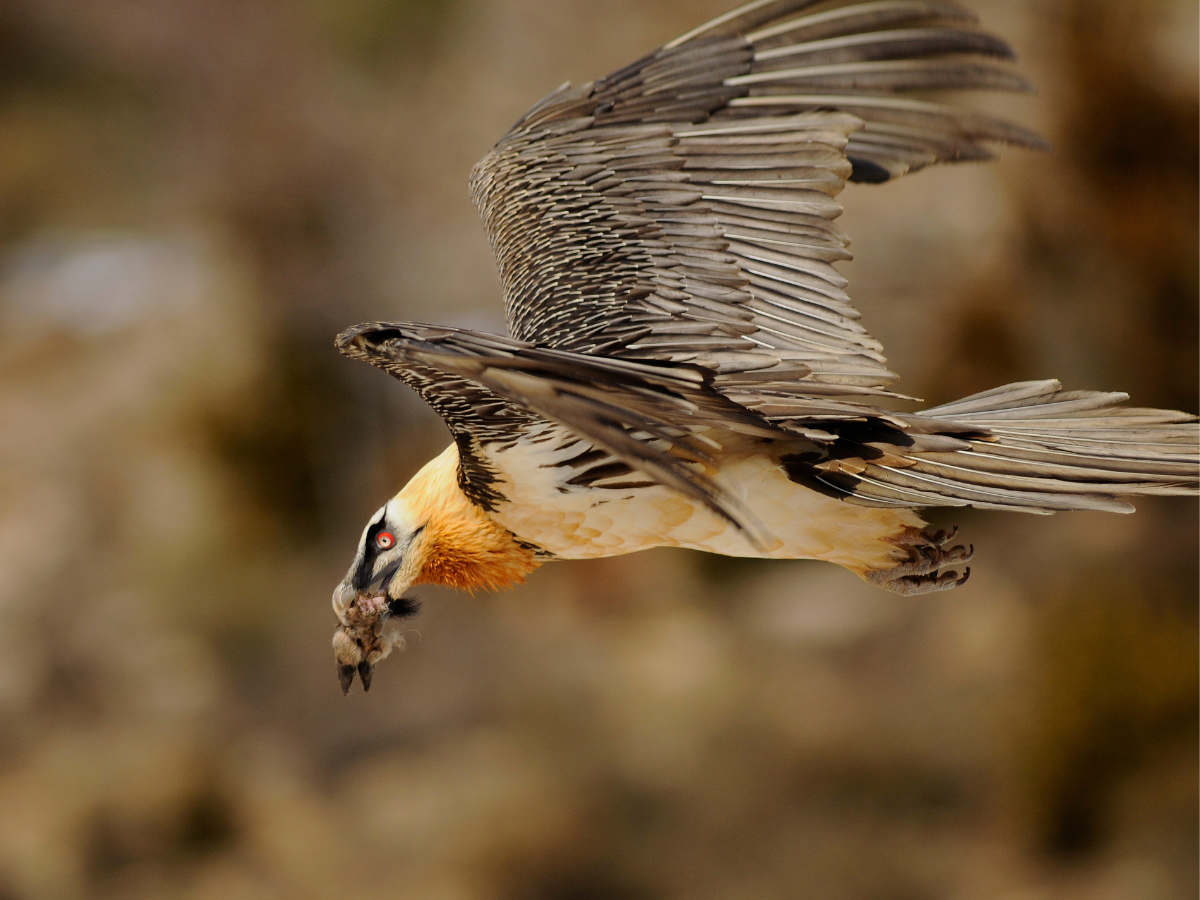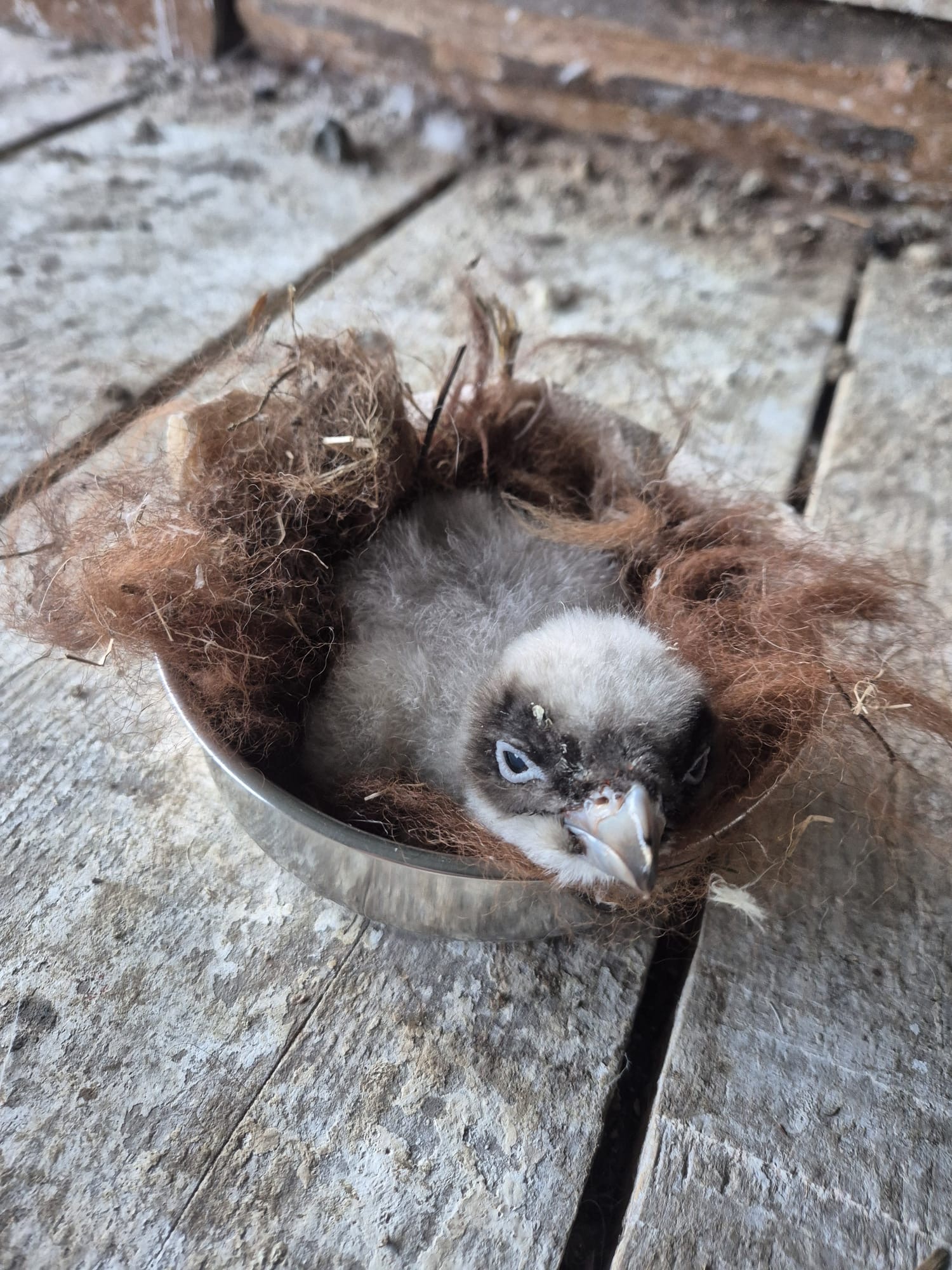On April 22–23, 25 wildlife professionals gathered at the Vallcalent Bearded Vulture Specialized Breeding Unit in Catalonia for an intensive workshop focused on improving care for Bearded Vultures (Gypaetus barbatus) in rehabilitation facilities.
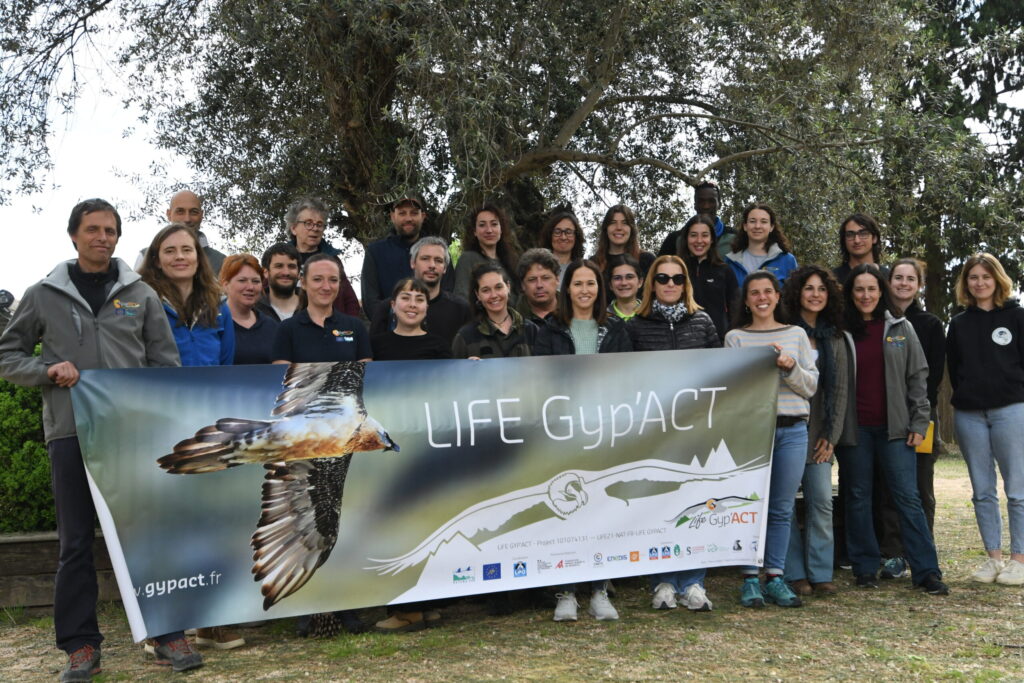
@ Pascal Orabi/LPO
Two days of collaboration to strengthen Bearded Vulture conservation
This training workshop, filled with practical sessions and rich discussions, was held at the renowned Vallcalent Centre – a key site for the conservation and captive breeding of Bearded Vultures.
Organised under the LIFE GYP’ACT programme, the event brought together a wide range of wildlife care centres from areas where Bearded Vultures are present – from Corsica and the Pyrenees to the French Alps. This first-of-its-kind meeting for field practitioners proved essential for harmonising care practices and boosting the collective capacity for the species’ recovery.
Participants benefitted from guidance by a panel of leading specialists: Alex Llopis, Coordinator for the Bearded Vulture EEP, Carmen Calero, Captive-breeding expert at Vallcalent, Judit Navarro, centre veterinarian and Vanessa Cadenas, coordinator of Catalonia’s network of wildlife rescue centres (Generalitat de Catalunya).

A hands-on programme addressing key health and care challenges
Over the two days, participants tackled a comprehensive range of medical, management, and conservation issues directly related to the care of Bearded Vultures:
- First aid protocols upon admission to wildlife centres
- Common injuries and illnesses, including poisoning, electrocution, trauma, and pododermatitis
- Prophylaxis procedures and innovative therapies
- Advances in physiotherapy and medical treatments, including recommended dosages (Presented by Andrea Vacas, a vet specialised in rehabilitation)
- New findings from a recent study on Bearded Vulture vision by researcher Simon Potier, offering insights that could help prevent collisions with powerlines and cable networks – a major threat to the species
- Housing conditions adapted to the specific needs of birds depending on their injuries
- Capture and safe transport of injured vultures
- Bird handling techniques to ensure effective restraint without harming the animal and to minimise risks to staff
- Food quality and quantity management to support recovery and rehabilitation
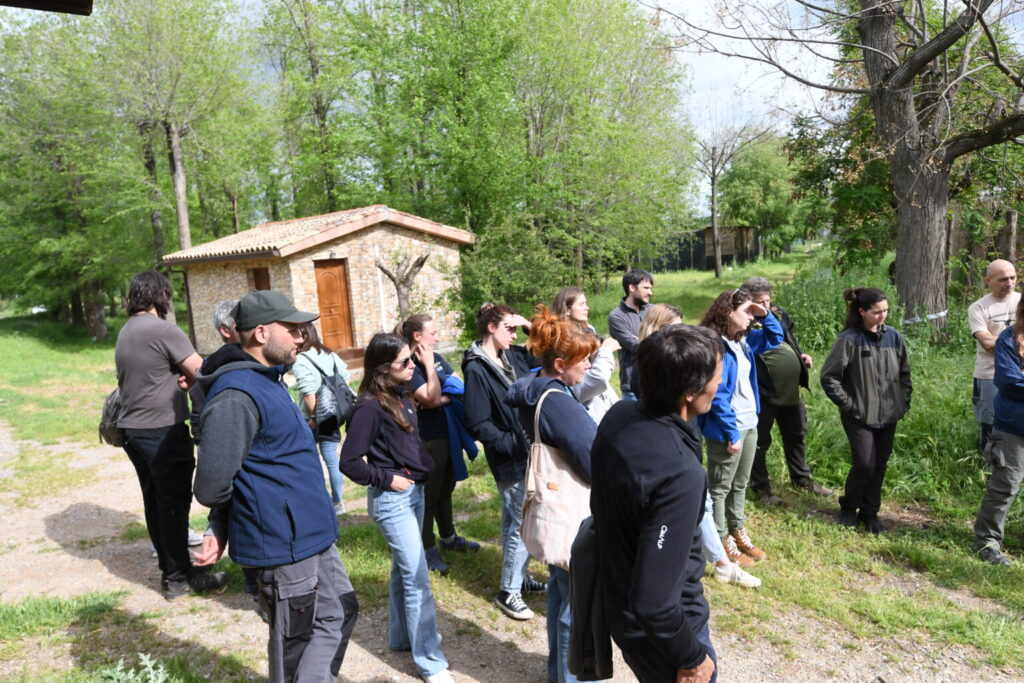
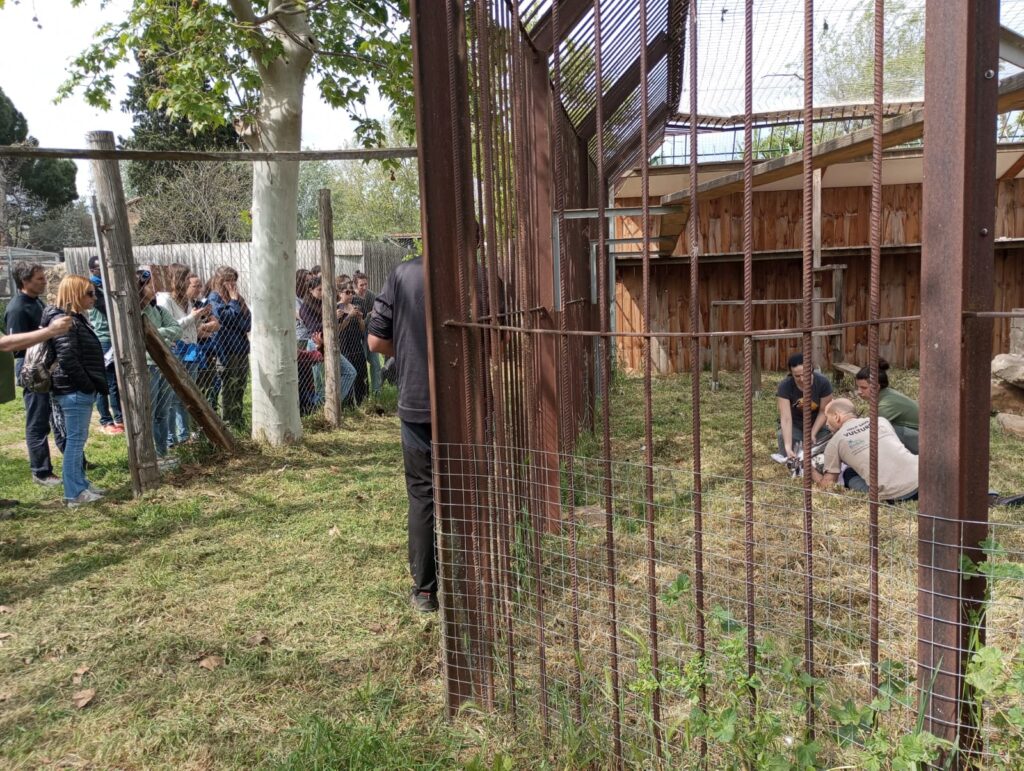
Practical workshops allowed participants to apply their newly acquired knowledge through real-life scenarios, such as handling exercises and simulated blood sampling.
A collective effort
Beyond the technical expertise, the workshop was marked by a strong spirit of interregional cooperation. Strengthening ties between wildlife rehabilitation centres and promoting skills transfer across the network will be key to enhancing the effectiveness of Bearded Vulture conservation efforts.
This workshop stands as another milestone in the long-term protection of the Bearded Vulture – an essential species for Europe’s biodiversity.

LIFE Gyp’Act is a 13M€ project, co-funded by the EU’s LIFE programme, that will run until 30 November 2028. Project partners are LPO – Ligue pour la Protection des Oiseaux as coordinator beneficiary, and the Vulture Conservation Foundation, Association Vautours en Baronnies, LPO Auvergne-Rhone-Alpes, LPO Occitanie, Sorbonne Université, ENEDIS, Centre National d’Informations Toxicologiques Vétérinaires, Parc National des Cévennes y Parc Naturel Régional du Vercors as associated beneficiaries.
Vallcalent Specialized Breeding Unit
The Centro de Fauna Salvaje Vallcalent houses the Vallcalent Bearded Vulture Breeding Unit, operating since 2005 through a partnership between the Vulture Conservation Foundation (VCF) and the Catalan Government. Home to 33 birds, Vallcalent plays a vital role in producing genetically important chicks, rehabilitating injured vultures, and providing foster care for birds that cannot breed naturally.

